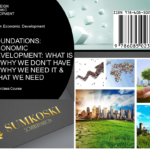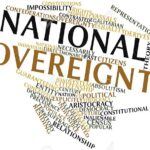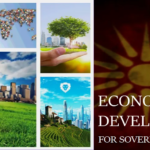

Immediately after President Vladimir Putin’s recent speech to the 18th Plenary Session of the Valdai Discussion Club (VDC) in Sochi, Russia, mainstream media across the globe went berserk.
Unable to contain its outrage, The Washington Post thundered in a headline, “Putin slams ‘cancel culture’ and trans rights, calling teaching gender fluidity ‘crime against humanity.’” Putin had notably pointed out that “those who risk saying that men and women still exist, which is a biological fact, are virtually ostracized.” Was he wrong?
But while gender issues grabbed the headlines, what the major media missed in Putin’s 40-minute speech and the three-hour Q&A that followed was his plea for Western intellectual elites to rethink their assumptions about what constitutes progress and integral human development within the global community.
As Western intellectual elites continue to reject these shared human values by denying the reality of the human person, there will be a continued disintegration of society, and gender issues are only one aspect of the deeper problem.
Because of Russia’s tragic experience with Soviet atheism, Russians have come to understand what most Western intellectual elites miss, that integral human development and peace among nations in the first instance must rest on a common understanding that “each of us is a human being” and that “life is precious.” That was at the core of Putin’s message at Valdai.
By referencing Russian philosopher Nikolai Berdyaev (1874-1948) on multiple occasions in recent years, and in his Valdai speech, Putin appears to embrace an approach to human development that is integral. It encourages personal creativity, dialogue, and engagement rather than a self-serving ideology and paternalism, whether motivated by the state or ecclesial authorities.
Berdyaev believed, after dumping his early love affair with Marxism, that a totalitarian mindset constrains freedom and degrades the value of the human person, and thus material and, especially, spiritual progress. Putin it seems is on the same page.
As such, freedom – understood as the responsible use of one’s time in the service of others – is indispensable for the person and society to flourish. Without the responsible use of freedom, there is no creativity or genuine service.
In other words, without freedom, human existence is reduced to a means to gain power and control others in the name of progress. This leads to social disintegration and international conflict.
Putin in sync with age-old ideas
Putin, it appears, embraces Berdyaev’s optimism. “Conservatism,” Putin said, “is not something preventing upward, forward movement, but something preventing [a person] from sliding back into chaos.” If we treat conservatism this way, it provides an effective foundation for further integral progress.
Putin’s use of the word “conservatism” is quite in line with Pope Benedict XVI’s use of “fundamentalism”: “Today, having a clear faith based on the Creed of the [Christian] Church is often labeled as fundamentalism. Whereas relativism, that is, letting oneself be ‘tossed here and there, carried about by every wind of doctrine,’ seems the only attitude that can cope with modern times.
“We are building a dictatorship of relativism that does not recognize anything as definitive and whose ultimate goal consists solely of one’s own ego and desires.”
At Valdai, there were echoes of Benedict XVI when Putin said, “Verbally, all states talk about their commitment to the ideals of cooperation and a willingness to work together for resolving common problems but, unfortunately, these are just words. In reality, the opposite is happening.… Egotistic interests prevail over the notion of the common good.”
Putin insisted that if the West wishes to subvert its own societies by encouraging children to change their sex, and destroy the family, so be it, but don’t bring those ideas to Russia. In Russia, it is not a “crime against humanity” when parents remind their children to stick to the science, that is, men are men and women are women.
“Some people in the West believe that an aggressive elimination of entire pages from their own history, ‘reverse discrimination’ against the majority in the interests of a minority, and the demand to give up the traditional notions of mother, father, family and even gender, [are progress]. They believe that all of these are mileposts on the path towards social renewal.”
Since the Western media habitually depict Putin as a cave-dwelling tyrannical despot, they missed his deeper message at VDC, namely the moral crisis in Western civilization that is not only destroying family and society but the spirit of enterprise and entrepreneurship.
Putin talks more about ideas and statecraft than most of his Western counterparts and no longer worries about criticism from the mass of Western intellectual elites.
Common values the basis of dialogue
Putin insisted that a recognition of common values, first and foremost the right to life and dignity, is facilitated by the Judeo-Christian legacy of the West – which includes the Greco-Russian historical intellectual and cultural tradition from which the Orthodox world springs.
This tradition, not to be confused with post-Enlightenment atheism and modern techno-political utopian ideologies (such as communism, fascism, globalism or scientism), builds on common sense, and accepts a rational set of principles helping peoples of diverse backgrounds to better engage in foreign affairs and nation building.
Putin’s VDC speech once again confirmed the increasingly obvious global consensus that multilateralism rather than unilateralism is the only possible approach to check the unhinged and arrogant approach of the global hegemon.
Understanding this, Putin was careful not to fall into the destructive web of provocations and heartless condescension that is rampant among so many Western elites. The emergent multipolar world, because it is open to dialogue, is more suitable in building mutual trust among nation-states than the unipolar approach of the hegemon.
Nothing irks the Western elites more than Putin’s insistence that Russia is “in favor of establishing multilateral format[s]” to solve conflicts between states.”
Western intellectual elites should reflect on what Putin was saying, that “the crisis we are facing is conceptual and even civilization-related. This is basically a crisis of approaches and principles that determine the very existence of humans on Earth….
“I am convinced that it is necessary to fight for real values, upholding them in every way.…To increase our chance of survival in the face of cataclysms, we absolutely need to rethink how we go about our lives, how we run our households, how cities develop or how they should develop. We need to reconsider economic development priorities of entire states.”
The principle of subsidiarity in nation-building
Putin insisted that local challenges require mostly local solutions, another bugaboo for globalists. “We need to be realistic: Most of the pretty slogans about coming up with global solutions to global problems that we have been hearing since the late 20th century will never become reality.
“To achieve a global solution, states and people must transfer their sovereign rights to supra-national structures to an extent that few, if any, would accept. This is primarily attributable to the fact that [a sovereign state] has to answer for the outcomes of such policies not to some global public, but to [its] citizens and voters.”
Putin emphasized that Russia’s attempts to work together with other nations have been thwarted again and again. He explained his thinking by saying that “egotistic interests prevail over the notion of the common good.”
In his Asia Times article “US elites’ corruption compares to the Opium War,” David Goldman finely articulates the problems in the West’s self-centered waywardness.
In search of a stable world order, Putin highlighted that unipolarism is a failed approach to the progress of nations: “So, we have a chance to create an extremely favorable precedent. The attempt to create it after the end of the Cold War based on Western domination failed, as we see. The current state of international affairs is a product of that very failure, and we must learn from this.”
Berdyaev revisited
Putin’s starting point for this “complex realignment process” in foreign affairs is informed by Russian philosophers and theologians of the early 20th century, particularly Nikolai Berdyaev, who understood that genuine human development must recognize a universal moral order (embedded in a particular way in the Russian soul and distinct from that of western Europe).
Aligned with these thinkers and the Judeo-Christian historical moral legacy, Putin emphasized several points:
- National sovereignty vs globalism: “Globalization supposedly made national borders an anachronism and sovereignty an obstacle to prosperity.… Only sovereign states can effectively respond to the challenges of the times and the demands of the citizens. Accordingly, any effective international order should consider the interests and capabilities of the state and proceed on that basis, and not try to prove that they should not exist.” Unlike the globalists, Putin (as most leaders from the Global South) does not ex ante reject national populism.
- Principled realism vs utopianism: Russia “could have dealt with its problems [in 1917] gradually and in a civilized manner” but the Bolshevik Revolution “led to the collapse and disintegration of a great power…. The cost of ill-conceived social experiments is sometimes beyond estimation. Such action can destroy not only the material, but also the spiritual foundations of human existence, leaving behind moral wreckage where nothing can be built to replace it for a long time.” Change must be thoughtful, anchored in realism and within the bounds of universal moral principles. “No revolution was worth the damage it did to the human potential.”
- A universal and moral order vs Machiavellian power politics: Without basic agreement on a universal moral order and values, any attempts to construct a geo-political or geo-economic world order is antithetical to the quest for human freedom and equality. The exercise of foreign policy is cultural imperialism when it rejects the notion of an independent nation-state with sovereign interests and responsibilities toward its own citizens that are distinct from those of a hegemon.
At Valdai, Putin invoked Martin Luther King to make clear that Western intellectual elites have either lost their way or outright rejected the common meaning of the human person. Just like King, Putin stands by the principle that a new world order might best be forged on universal common values rather than on a balance of chariots and charioteers, an idea that is foreign to the neoconservative war party.
- Fraternity vs individualism: Narcissism and unbridled individualism (now entrenched in Western societies) have led to the disintegration of whole communities and nations, particularly because the family has been so savagely attacked by anti-theists and those who reject science despite the science. “In a number of Western countries, the debate over men’s and women’s rights has turned into a perfect phantasmagoria. Look, beware of going where the Bolsheviks once planned to go.… One more step and you will be there…. We believe that we must rely on our own spiritual values, our historical tradition and the culture of our multiethnic nation.” Some see Russia as the last bulwark against secular atheism – hence the hatred.
- Life vs death: To bring about unity in the face of diversity and of different cultural traditions, Putin went to the heart of the matter. “Do you know what the trick is? The trick is that of course there is a lot of diversity and every nation around the world is different. Still, something unites all people. After all, we are all people, and we all want to live. Life is of absolute value.” The suicide of the West, just like during the Soviet period, begins with a disrespect and even hatred for life, and a rejection of marriage and the family.
Putin would have no disagreement with the Russian Orthodox Patriarch Kirill when he says that “the idea of absolutely prioritizing the value of free choice and of rejecting the priority of moral norms has become a slowly exploding bomb for Western civilization, if we could just cut in half the number of abortions, there would be steady and powerful demographic growth.” This absolutely thrashes the “culture of death” promoted by Western elites.
“In my opinion,” Putin said, “the same [respect for life] applies to family as a [universal] value, because what can be more important than procreation? Do we want to be or not to be? If we do not want to be, fine. You see, adoption is also a good and important thing, but to adopt a child someone has to give birth to that child. This is the second universal value that cannot be contested.”
Putin was saying that if Western intellectual elites want to destroy their own Judeo-Christian heritage, so be it, but leave Russia alone. He emphasized: “Again, for us in Russia, these are not some speculative postulates, but lessons from our difficult and sometimes tragic history.
“The cost of ill-conceived social experiments is sometimes beyond estimation. Such actions can destroy not only the material, but also the spiritual foundations of human existence, leaving behind moral wreckage where nothing can be built to replace it for a long time.” The West should learn from Soviet atheism and from the consequences of social engineering before it descends into totalitarianism.
As Putin said, Russia’s conservative approach to statecraft “is not about an ignorant traditionalism, a fear of change or a restraining game, much less about withdrawing into [one’s] own shell. It is primarily about reliance on a time-tested tradition, the preservation and growth of the population, a realistic assessment of oneself and others, a precise alignment of priorities, a correlation of necessity and possibility, a prudent formulation of goals, and a fundamental rejection of extremism as a method.”
What can bring us together is a recognition, as Putin says, that “each of us is a human being. This is what matters.” As the title of the Valdai meeting suggests, the world needs a global shake-up in the 21st century.
The post The optimistic conservatism of Putin’s Valdai address appeared first on Asia Times.



























